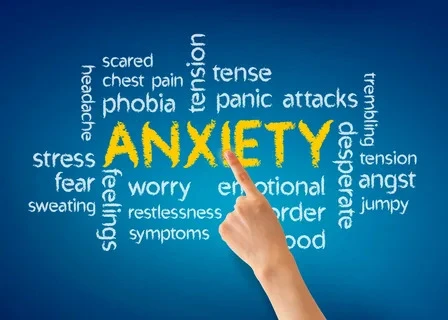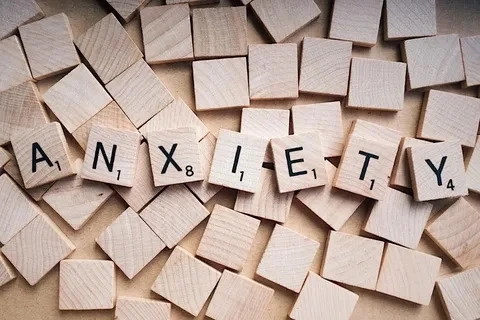Overview
Complex mental health diseases, anxiety disorders can significantly affect an individual\'s day-to-day functioning. A variety of symptoms, ranging from crippling panic attacks to constant worry, are indicative of anxiety disorders and can be difficult to treat. Thankfully, there are now efficient anxiety treatment alternatives available to assist people in managing their symptoms and taking back control of their life, thanks to advances in research and knowledge. We will examine the complexities of anxiety disorders, their underlying processes, and the wide spectrum of possible treatment options in this article.
Recognizing Anxiety Disorders: Dissecting Their Intricacy
Anxiety disorders are a group of conditions marked by a great deal of anxiety, fear, and trepidation. While it\'s common to occasionally feel anxious in reaction to stress or uncertainty, anxiety disorders are characterized by overwhelming, persistent symptoms that make it difficult to go about daily tasks. Panic disorder, social anxiety disorder, generalized anxiety disorder (GAD), and particular phobias are common forms of anxiety disorders.
Interpreting the Fundamental Mechanisms
Anxiety disorders have complex underlying mechanisms that involve a confluence of biological, psychological, environmental, and genetic components. Anxiety disorders are largely caused by imbalances in brain chemistry, especially when it comes to neurotransmitters like serotonin and gamma-aminobutyric acid (GABA). Anxiety symptoms can also arise and worsen as a result of learnt behaviors, stressful life events, and past traumas.
The Value of Prompt Intervention
In order to effectively manage anxiety disorders and stop them from getting worse, early intervention is essential. Improving outcomes and lessening the burden on people\'s lives depend on identifying the telltale signs and symptoms of anxiety disorders and obtaining the right anxiety treatment. Early intervention for anxiety disorders helps people acquire coping mechanisms, build resilience, and enjoy better general health.
Treatment for Anxiety: An Integrated Approach
Treatment for anxiety includes a range of methods designed to lessen symptoms, enhance coping mechanisms, and improve overall quality of life. Cognitive-behavioral therapy (CBT) is one of the most popular and successful types of anxiety treatment. Through the identification and challenging of negative thought patterns and behaviors linked to anxiety, cognitive behavioral therapy (CBT) helps people make long-lasting adjustments in their perception of and reaction to stresses.
In especially for those with severe symptoms or those who don\'t react well to therapy alone, medications are a crucial part of anxiety treatment. Benzodiazepines, selective serotonin reuptake inhibitors (SSRIs), and serotonin-norepinephrine reuptake inhibitors (SNRIs) are often recommended drugs for anxiety disorders. These drugs function by changing the chemistry of the brain to lessen anxiety symptoms and increase relaxation.
Creative Methods for Treating Anxiety
Novel methods of treating anxiety are consistently emerging in addition to conventional psychotherapy and pharmaceutical interventions. Mindfulness-based therapies, including mindfulness-based cognitive therapy (MBCT) and mindfulness-based stress reduction (MBSR), have demonstrated potential in mitigating symptoms of anxiety and enhancing general well-being. These methods place a strong emphasis on accepting one\'s thoughts and feelings without passing judgment and on being in the now.
Transcranial magnetic stimulation (TMS), neurofeedback, and virtual reality exposure therapy are a few more cutting-edge treatments for anxiety disorders. These methods provide new options for patients who are not responding to treatment by utilizing technology and neuroscience to target certain brain areas and neural circuits linked to anxiety.
Holistic Methods for Handling Anxiety
Holistic approaches to anxiety management can enhance conventional anxiety treatment and advance general well-being in addition to therapeutic measures. Changes in lifestyle that include a balanced diet, frequent exercise, and enough sleep can have a significant impact on stress levels and mood. In order to lessen anxiety and encourage relaxation, mind-body techniques like yoga, tai chi, and qigong combine physical movement with mindfulness and breathwork.
Developing Coping and Resilience Capabilities
Developing coping mechanisms and resilience is crucial for the long-term treatment of anxiety disorders. People can develop appropriate coping mechanisms, recognize triggers, and question skewed thought patterns through psychoeducation and skill-building exercises. These abilities enable people to handle difficult circumstances more skillfully and lessen the negative effects of anxiety on their daily lives.
Social Support\'s Function
A key component of anxiety treatment and recovery is social support. Having a strong support network, whether it consists of friends, family, online forums, or support groups, can offer consolation, encouragement, and useful assistance during trying times. In particular, peer support groups provide a secure and accepting environment where people may talk about their experiences, pick up tips from others, and get perspective on their own challenges.
In conclusion: Opening the Door to Recovery
In summary, anxiety disorders are difficult and complex diseases that need for all-encompassing treatment strategies. People can free themselves from the control of anxiety and find a route to healing by comprehending the fundamental causes of anxiety, pursuing early intervention, and investigating a variety of treatment options. There are several approaches to deal with anxiety and develop more serenity and resilience, including counseling, medicine, lifestyle changes, and holistic methods. 


